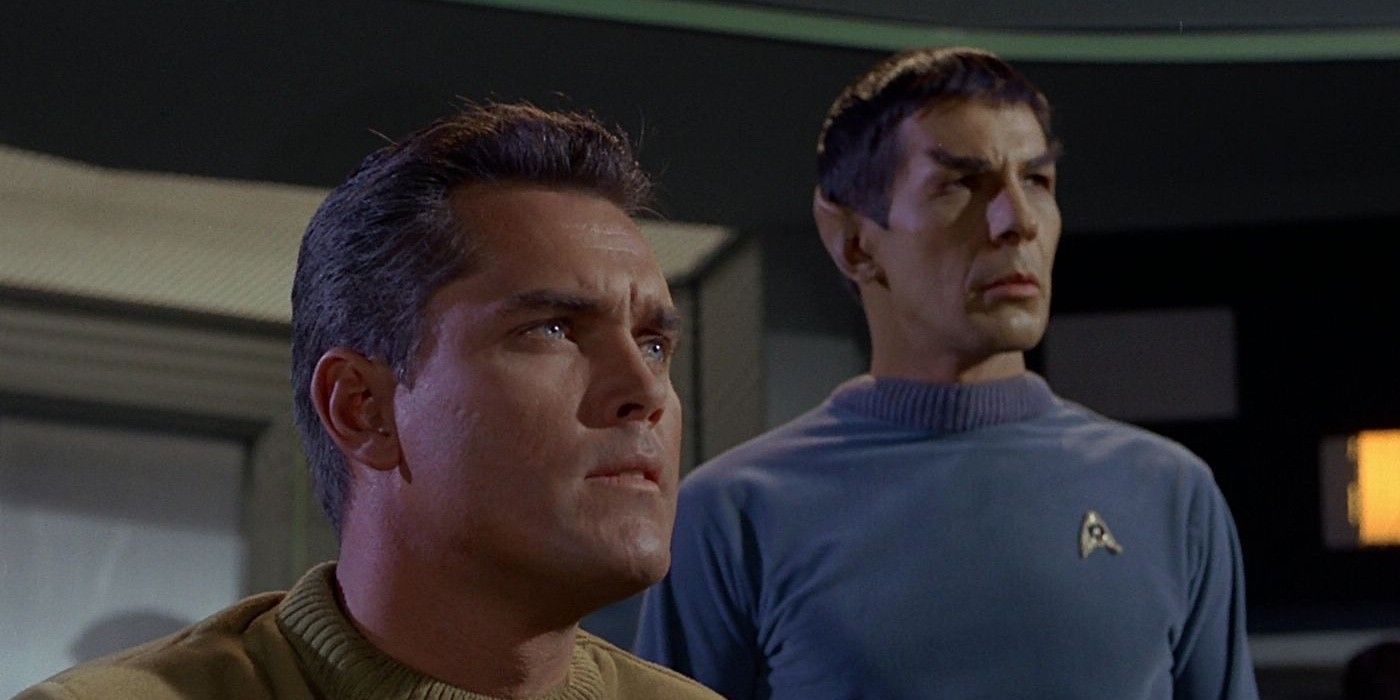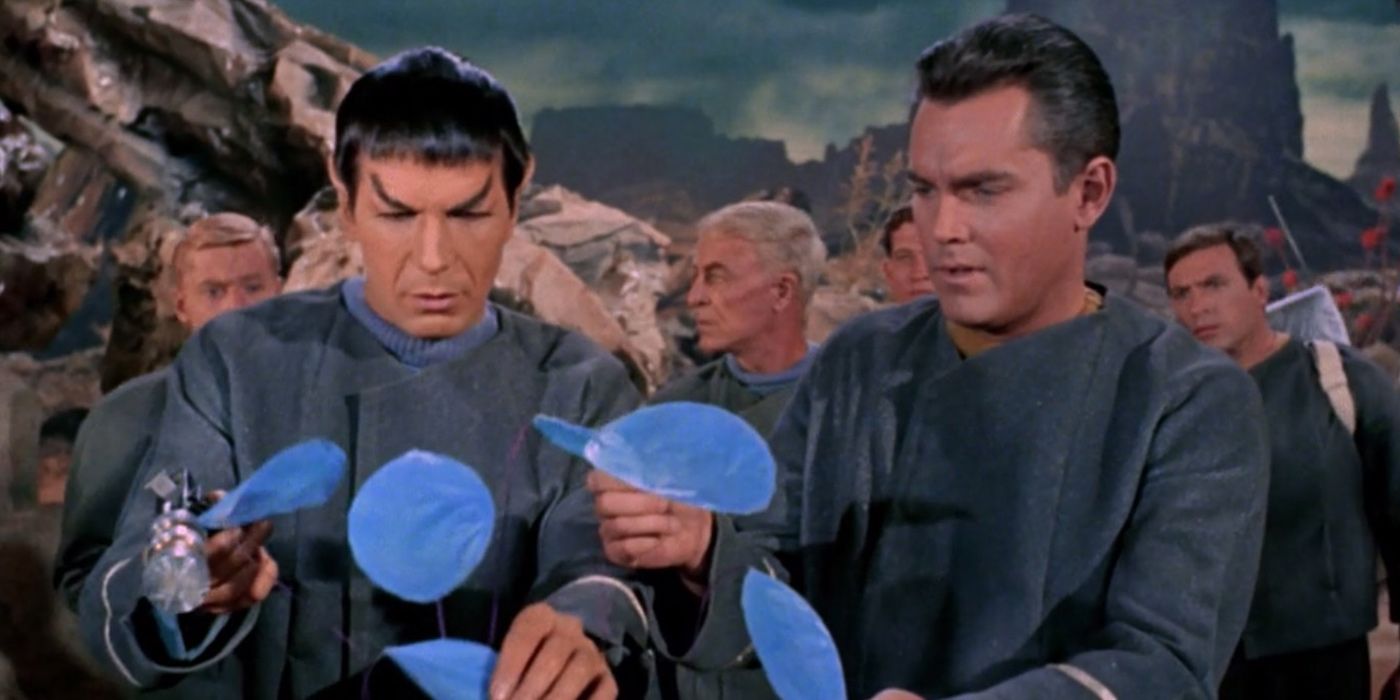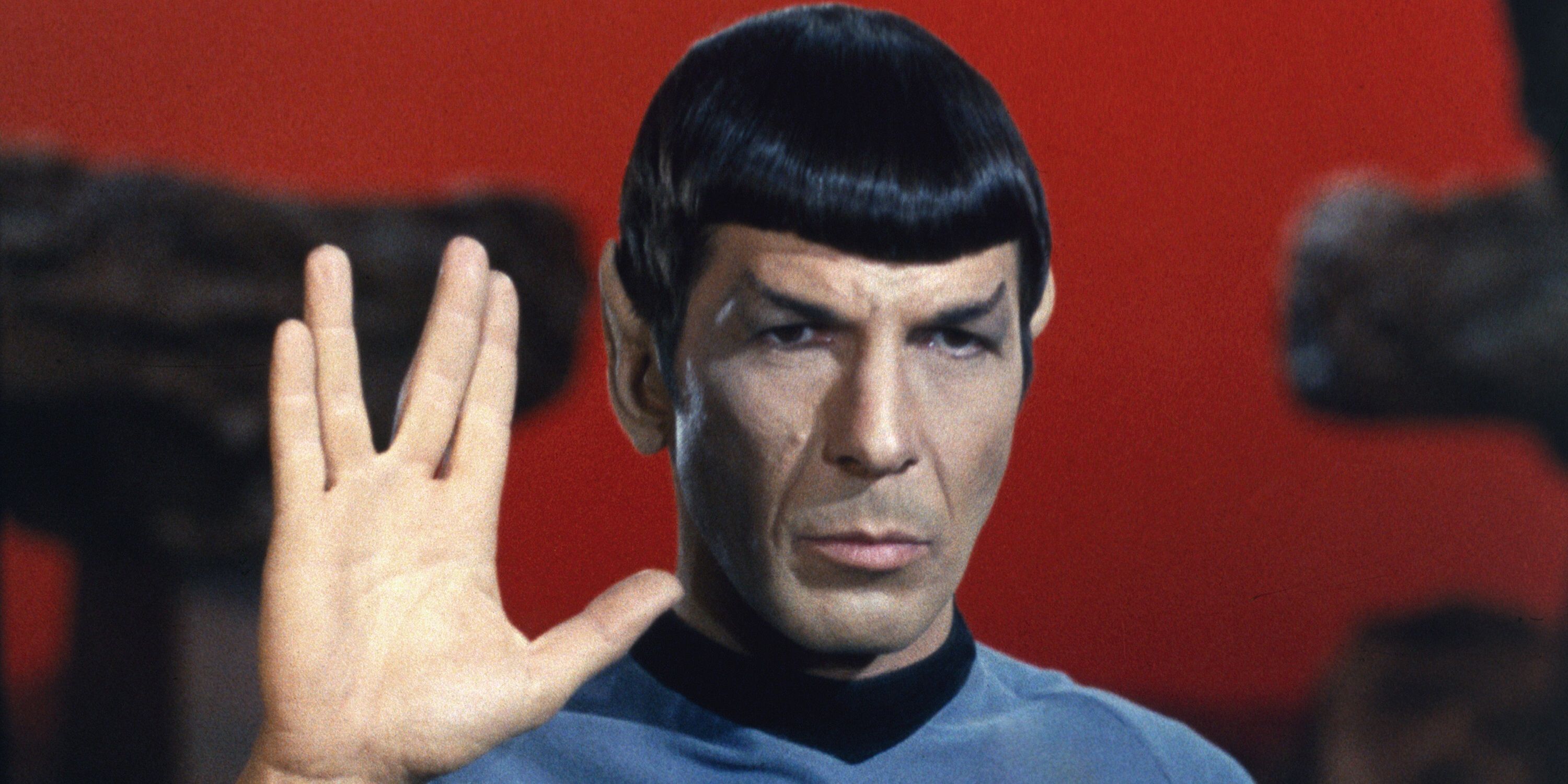Spock Was Originally Emotional In Star Trek (& Why The Vulcan Changed)

Spock was uncharacteristically emotional in the first Star Trek pilot, as the backstory for the emotionless Vulcans had not yet been established.
The first pilot for Star Trek: The Original Series featured an unusually emotional version of Spock (Leonard Nimoy), as the backstory for the logic-driven, emotionless Vulcans had yet to be established. Spock was the only character in “The Cage” who would go on to become a series regular in TOS. NBC executives had reservations about the character, feeling he looked too demonic, but series creator Gene Roddenberry realized what he had in Nimoy and successfully lobbied to keep the character.
Spock would go on to become a cultural icon, even surpassing the popularity of ostensible series lead Captain James T. Kirk (William Shatner). The Enterprise’s half-Vulcan, half-human Science Officer was the show’s most intriguing character, and Spock’s relationship with Kirk would define the franchise for its first three decades. And yet Spock was not quite fully formed in his first appearance, displaying some characteristics that would become anathema to the stoic Vulcan.
Spock’s Emotion In Star Trek’s Original Pilot & Why It Changed In TOS
Spock appeared in the original TOS pilot “The Cage” as a Lieutenant under the command of Captain Christopher Pike (Jeffrey Hunter). This version of Spock was as emotional as any human, even grinning ear to ear when he encountered singing flowers on Talos IV. Nimoy would remark years later that he felt the need to bring a high amount of energy to Spock in “The Cage,” as Hunter’s portrayal of Pike was so understated and restrained.
When Shatner’s Kirk replaced Hunter’s Pike in the second Star Trek pilot “Where No Man Has Gone Before,” Nimoy no longer felt the need to be so emotive, as Shatner’s over-the-top, manic energy was immediately apparent. Nimoy and Roddenberry refined Spock to be a logic-driven intellectual who eschewed emotion to contrast him with the hyper-passionate Kirk. It was a brilliant decision that established the most famous character dynamic in all of Star Trek.
Spock’s Vulcan Lack Of Emotion Changed Star Trek
While Spock was changed for largely pragmatic reasons, the shift toward him becoming driven by logic proved to be crucial to one of Star Trek‘s central themes, as Spock embodied the constant human struggle between emotion and logic. Spock often clashed with Dr. Leonard “Bones” McCoy (DeForest Kelley), Kirk’s other most trusted confidante, who was even more susceptible to passion and emotional outbursts than Kirk. That trio of men defined the early days of Star Trek with their caustic, philosophically challenging friendship.
The “emotion vs. logic” power dynamic would carry on past TOS. In Star Trek: The Next Generation, the intellectual, somewhat cold Captain Jean-Luc Picard (Patrick Stewart) had to co-exist with emotionally driven characters like Commander William Riker (Jonathan Frakes) and Lieutenant Worf (Michael Dorn). In Star Trek: Discovery, the battle is internalized, as human Captain Michael Burnham (Sonequa Martin-Green), who was raised by Vulcans, endures a constant struggle to reconcile her two heritages. Spock’s early evolution not only made Star Trek: The Original Series a better show, it helped define one of the driving themes of the entire franchise.
Share this news on your Fb,Twitter and Whatsapp
NY Press News:Latest News Headlines
NY Press News||Health||New York||USA News||Technology||World NewsTimes News Network:Latest News Headlines
Times News Network||Health||New York||USA News||Technology||World News

